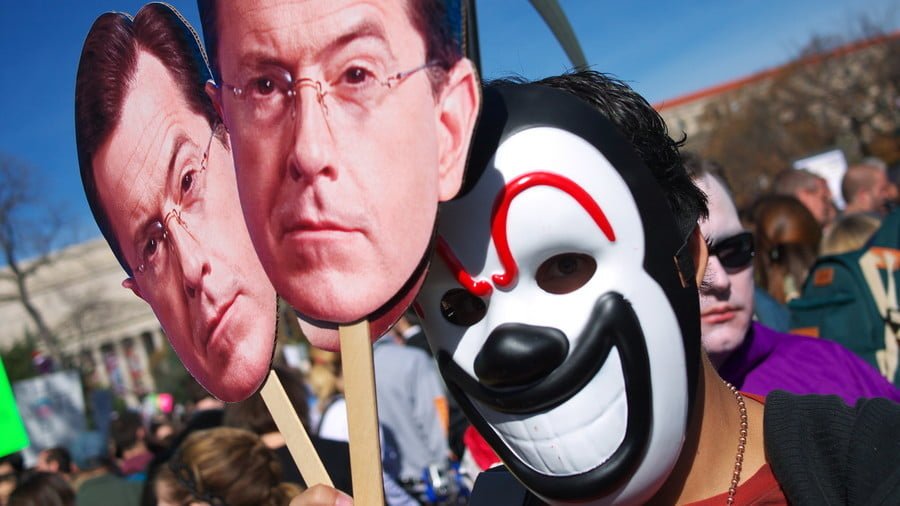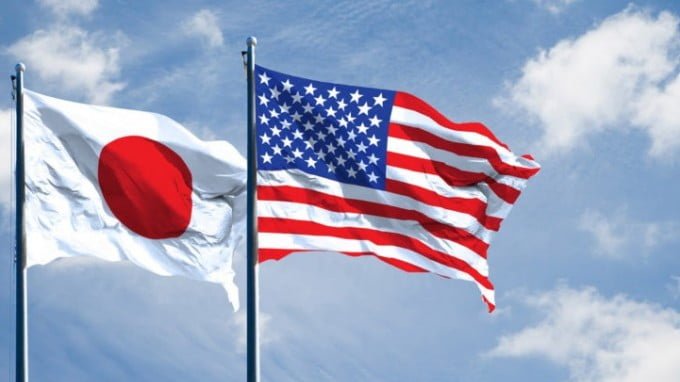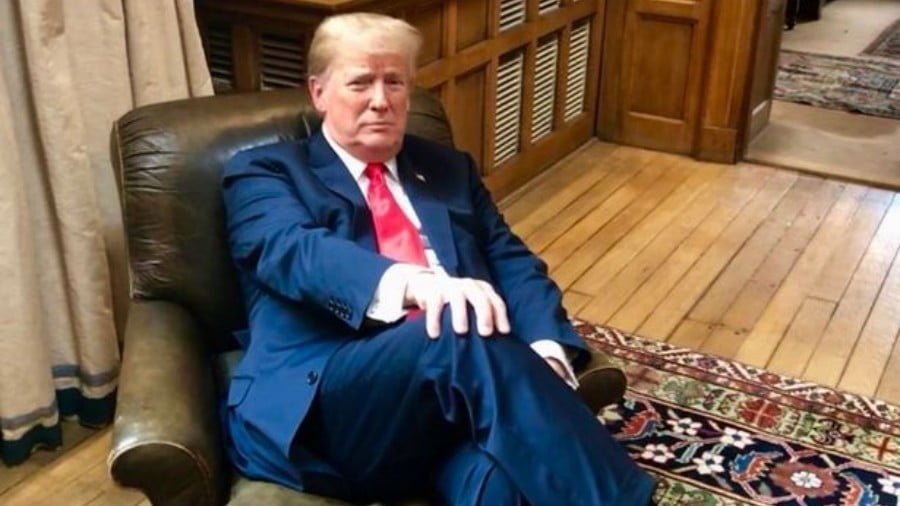The Implications Of Daesh’s Palmyra Offensive
Daesh is on the warpath again, this time making another attempt to seize the historic and symbolic city of Palmyra. The precise details about the course of the battle and the city’s immediate future are unclear, but what’s easier to assess are the implications behind this latest assault.
The first thing is that the attack didn’t completely come by surprise, as Daesh was making incremental advances around the city’s outskirts over the past couple of weeks. What changed the balance, however, is that this occurred right around the same time as Russia and Syria were laser-focused on liberating Aleppo, which gave the terrorists some tactical room to maneuver while their opponents were more preoccupied elsewhere.
Although the Russian Aerospace Forces did respond to the attack, the fact that they weren’t preemptive in stopping it in the first place could mean a few interrelated things. The first is that Russia was so concentrated on the Aleppo operation (both its military and humanitarian halves) that it simply didn’t have enough resources to devote to monitoring events around Palmyra. This would point to larger problems, though, which would suggest that the size of the Russian military presence in Syria is not adequate for the mission that’s expected of it and should consequently be increased as soon as possible.
This observation gains credence when one considers the reports that the Palmyra offensive was enabled by Daesh reserves being redirected from Raqqa and Mosul, which if true, would mean that a few thousand terrorists and all of their heavy weaponry were able to make the long haul across the desert (and in the case of Mosul, even across the international border) without being detected and/or preemptively bombed.
It seems likely that Russia did have some indication about the imminent threat being posed to Palmyra but either lacked sufficient intelligence about its true scale or had to make the difficult choice of committing its limited in-country forces to Aleppo at the possible expense of Palmyra. Understanding these presumptions as being the most logical, the question once again comes down to the size of the Russian Aerospace Forces inside of Syria, which raises questions about the political will of the Russian leadership to increase them.
It is not at all being inferred that President Putin “sold out” or “betrayed” Syria (like some “super patriotic” rabble rousers persistently accuse him of, for reasons that only they can account for), but just that Russia has evidently not “thrown the whole military” against Daesh, possibly out of an overabundance of caution in getting drawn into “mission creep”. Feel as one may about the wisdom of this decision, it isn’t the author’s intent to render subjective judgement on it, but just to make its objective existence known. Moscow’s strategic calculations in this regard may change after the latest developments, but at this moment, there’s no denying the obviousness of what’s in front of everyone’s eyes on full and painful display.

Having said that, some remarks must also be made about the Syrian Arab Army (SAA). Every single member of this amazing fighting force has been doing their utmost best throughout these nearly six long years of horrible war to defend their beloved civilization-state, and they deserve the highest of respect from all sincere supporters of Syria. However, due to their immense physical and mental sacrifices during this grueling time, it’s understandable that some of their resources have been depleted and that they cannot fight on all fronts at all times and with the same intensity.
In order to completely liberate the country, there must be full coordination between the Russian Aerospace Forces, the SAA, and the patriotic militias (both domestic ones and foreign volunteers such as Hezbollah, the Lebanese members of the SSNP, and the Iranian Shiite forces). Anything less than that is insufficient for properly resisting and destroying the terrorists which have invaded Syria from dozens of countries all across the world and have the direct backing of many Great Powers. Such a herculean logistical, communication, and command task is very difficult to pull off, especially considering the diversity of the pro-Damascus forces as was just mentioned above.
Any relative battlefield losses shouldn’t be seen as a “defeat” for the SAA, but as a sign that closer coordination between all patriotic forces is an urgent imperative, and that the onus in boosting political commitment to Syria rests not only with Russia, but also Iran and its Hezbollah allies, too. At the end of the day, battles are won on the ground, not from the air, and the Russian Aerospace Forces can only do so much to liberate and defend territory. This requires a holistic approach from all of the on-the-ground actors engaged in the patriotic struggle, and it’s insincere for “constructive” critics to focus their attention solely against Russia while ignoring the fact that Iran and its allies could also equally do more in the spheres that they presently operate in.
For the foreseeable future, it looks like the SAA will concentrate on liberating and defending the whole of Aleppo while also doubling down on its defenses along the main battle lines, particularly near areas of crucial logistical importance such as highways. In light of what’s just transpired, it’s premature to suggest that they’ll make a rapid move elsewhere at this time, such as in the direction of Idlib or Raqqa, though if physically possible, they’ll of course do their best to beat Daesh safely back from Palmyra.
Until Russia, Iran, and Damascus’ allied militias increase their military commitment to the war, the SAA will likely remain in the defensive position of securing their hard-fought gains and replenishing their depleted forces. This can’t continue indefinitely, however, because the political clock is ticking. UNSC 2254 calls for new elections and a new constitution by June 2017, so there are really only six months left until that time.
It may not be possible to meet the deadline in having a nationwide vote on both of these issues so long as Daesh still occupies part of the country and the self-declared “federal” Kurds aggressively push forward with their illegal de-facto internal partition. If Russia, Iran, and/or Damascus’ allied militias don’t substantially increase their military commitment and qualitatively change the battleground situation against Daesh and the Kurdish PYD-YPG, then the only in-country military force even remotely capable of having the political will to do so is, ironically and interestingly enough, Turkey.
It shouldn’t be forgotten that Erdogan dispatched Turkish forces and the (now) Ankara-controlled “Free Syrian Army” (FSA) to Syria over a quarter of a year ago, and despite Damascus’ loud and public demurs from time to time about this, it nor its Russian and Iranian allied protectors have taken any substantial action aimed at thwarting the Turks, which compellingly makes it seem like some degree of prearranged coordination was agreed to by all sides.
The author examined this in-depth in his two Katehon articles titled “Turkey Crosses Into Syria: Unipolar Conspiracy Or Multipolar Coordination?” and “Turkey, The FSA, And The Upcoming Quarrel Over Syria’s Constitution“, and they should be referenced in connection with any specific questions that the reader might have on this topic.
Presuming the obviousness that at least some degree of implicit coordination was agreed to by all sides, then it’s possible for Turkey to step deeper into the fray (or be drawn into it by more Daesh- or PKK-linked terrorist attacks) and eventually end up liberating Raqqa and disarming the Kurdish “federalists” in lieu of the SAA. The author of course would prefer that only Syrians liberate every square inch of their territory and convince their compatriots to lay down the arms the they’ve taken up against the state, but under the present conditions of situationally inadequate Russian, Iranian, and Damascus-allied militia political-military commitment, coupled with the SAA’s understandable need to replenish their forces and secure newly liberated territories, Turkey becomes the only realistic option for accomplishing this goal, just like it was explained in the author’s second-cited Katehon piece.
Whether or not Turkey can be fully trusted is a different matter entirely, but it’s undeniable that Russian-Turkish and Iranian-Turkish relations have never been closer than what they are today after the geopolitical reorientation that took place in the aftermath of this summer’s failed pro-US coup against Erdogan, which was also correctly forecasted in the author’s other Katehon article about how “Post-Coup Turkey Will Be Distinctly Eurasian“.
This gives rise to well-grounded optimism that Turkey, for all of its former terrorist and regime change connivances against Syria and the deaths of hundreds of thousands of innocent people that it’s in one way or another responsible for, might finally be in a position to “do some good” in trying to “atone” for the countless cardinal sins that it’s committed.
It should go without saying that Turkey wouldn’t do any of this out of the guilt that it should rightly feel, but due to concrete geopolitical self-interests as explained in the author’s article about “Turkey, The FSA, And The Upcoming Quarrel Over Syria’s Constitution“. Nevertheless, in such a situation as Syria, Russia, and Iran presently find themselves in, and for the reasons elaborated on throughout this article, Turkey has decisively emerged as the only force which could quickly make a move on Daesh’s “capital” of Raqqa and pacify the “federalist” Kurds, though provided that it — just like its Russian and Iranian Great Power counterparts are presently struggling to do — can muster the political will to do so.
By Andrew Korybko
Source: Oriental Review







